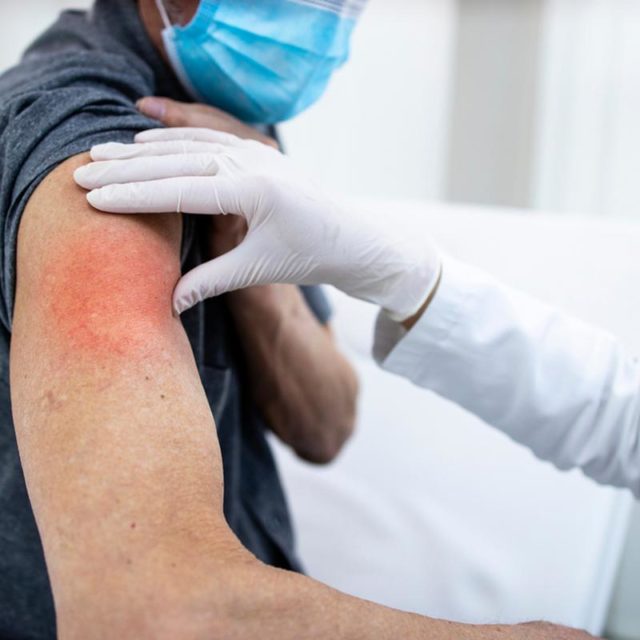Psoriasis is an autoimmune disorder that takes place when skin cells start growing too quickly. This causes mainly due to the faulty signals sent in the immune system that lead to formation of new skin cells to form in days instead of weeks. The body doesn’t shed these excess skin cells and hence, they start to pile up on the surface of the skin forming lesions. Psoriasis is not contagious.
Signs and Symptoms: The lesions that are formed differ in appearance with the type of psoriasis. There are about five types of psoriasis, which include plaque, guttate, pustular, inverse and erythrodermic. Almost 80% of people suffering from psoriasis have plaque psoriasis. This type of psoriasis forms patches of thick and scaly skin in white, silvery or red shades. These patches can be formed in any part of the skin and most commonly in the elbows, knees, lower back and scalp.
Psoriasis also affects the nails at times. Around 50% of people with psoriasis notice transformations in their fingernails and toenails. If you observe that your nail is starting to pull away from the nail bed or is developing some sort of pitting or becomes yellowish-orange in color, it might be an indication of psoriatic arthritis. If not treated, psoriatic arthritis will progress and can become devastating. The moment you notice any change in your nails or develop joint pains see a dermatologist. Early treatment can put off further joint deterioration.
Psoriasis affects any individual of any age group. It is a chronic medical condition, hence becomes nuisance for some people. Some have repeated flare-ups occurring weekly or at times monthly, while others have occasional flare-ups. The flaring up of psoriasis causes severe itching along with pain. At times, the skin cracks and also starts to bleeds. If this happens while sleeping, you will wake up frequently thereby leading to sleep deprivation that can affect work life.
Causes: The main cause of psoriasis is not clearly understood yet it is considered as a genetic component. Psoriasis gets aggravated by various environmental factors, such as stress, withdrawal of systemic corticosteroid, as well as other environmental factors. As such you can find a number of treatments available for this skin condition, but due to its persistent chronic nature, psoriasis becomes challenging to treat. The treatment for Psoriasis is best achieved by rectifying the immunity as the cure needs to be internal.
Psoriasis homeopathic treatment is the best remedy for this condition. The chronic nature of the disease makes it important for the patients to play an active role in managing it. Educating themselves as much as they can about psoriasis, visiting a dermatologist to discuss the treatment options as well as following a healthy lifestyle can be a lot of help to them.











